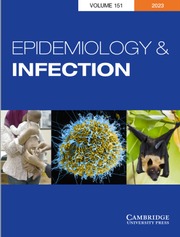Article contents
The Influence of Metabolic Factors in Beri-Beri. Part I. The Effect of increasing the Carbohydrate Ration on the Development of Polyneuritis in Birds Fed on Polished Rice
Published online by Cambridge University Press: 15 May 2009
Extract
(1) Chickens fed on a 1/20th their body-weight daily of padi, cured or parboiled unpolished rice, or fresh (partly polished) rice, remain free from polyneuritis for at least 28 to 100 days.
(2) Chickens fed on the same ration of polished Siam rice develop symptoms of polyneuritis in from 20 to 70 days.
(3) When the polished rice is soaked in excess of water for 24 hours the birds succumb to polyneuritis in from 10 to 35 days; when the rice is soaked for 48 hours the disease appears still more readily, viz. in 15 days.
(4) Chickens fed on 1/20th their body-weight of parboiled rice which had been soaked for 24 hours also develop polyneuritis in from 13 to 39 days. This fact is of practical importance, as epidemics of beri-beri have been traced to the practice of soaking unpolished rice prior to cooking and discarding the water.
(5) Although birds fed on diets of polished rice, sago, or glucose develop polyneuritis, when fed on commercial starch they often fail to do so and merely lose considerably in weight. An explanation is offered.
(6) While fowls fed on 1/20th their body-weight of padi remain free from polyneuritis for at least 60 to 100 days, when this ration is supplemented by 1/6th the body-weight of washed unpolished rice or 1/10th of polished rice polyneuritis appears in from 20 to 30 days.
(7) On the other hand, chickens fed on rations varying from 1/5th to 1/30th of their body-weight of washed unpolished rice develop polyneuritis in about the same time, 10 to 20 days.
(8) On dietaries composed of rations of polished rice varying from 1/20th to 1/40th the body-weight and of yeast varying from 1/2500th to 1/3500th the body-weight pigeons and chickens do not develop polyneuritis until at least 32 to 100 days have elapsed, but when the carbohydrate ration is doubled by the addition of polished rice or sago the birds fall ill in from 13 to 46 days.
(9) Even when daily rations of polished rice as large as 1/10th the body-weight are fed to chickens together with varying amounts of yeast, 93 to 98 per cent, of the carbohydrate is digested and absorbed and the excreta contain no anti-neuritic substance. This shows that the rapid development of polyneuritis induced by feeding large rations of starch is not due to interference of undigested carbohydrate with the absorption of the active material.
(10) Intestinal bacteria, unlike yeast, contain little anti-neuritic substance.
- Type
- Research Article
- Information
- Copyright
- Copyright © Cambridge University Press 1914
References
- 13
- Cited by


